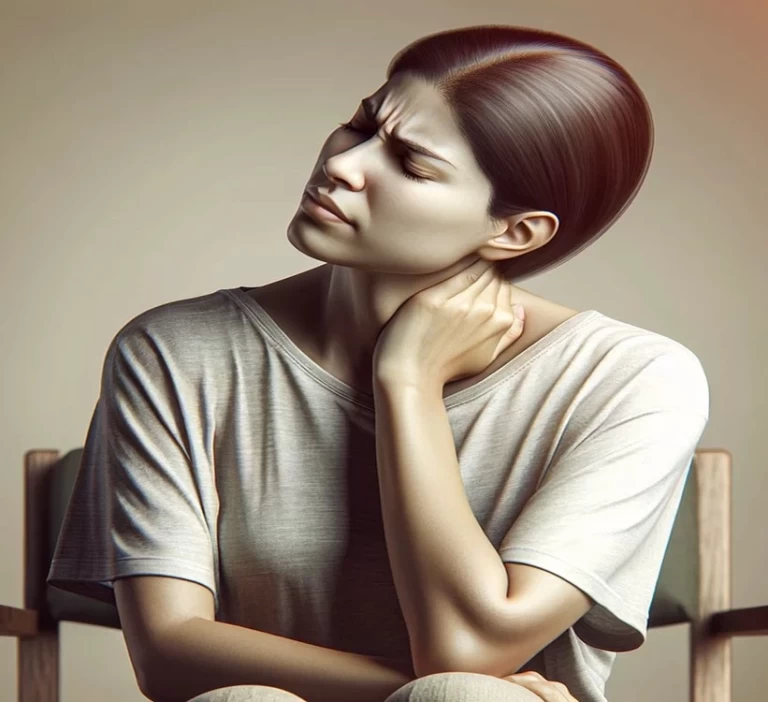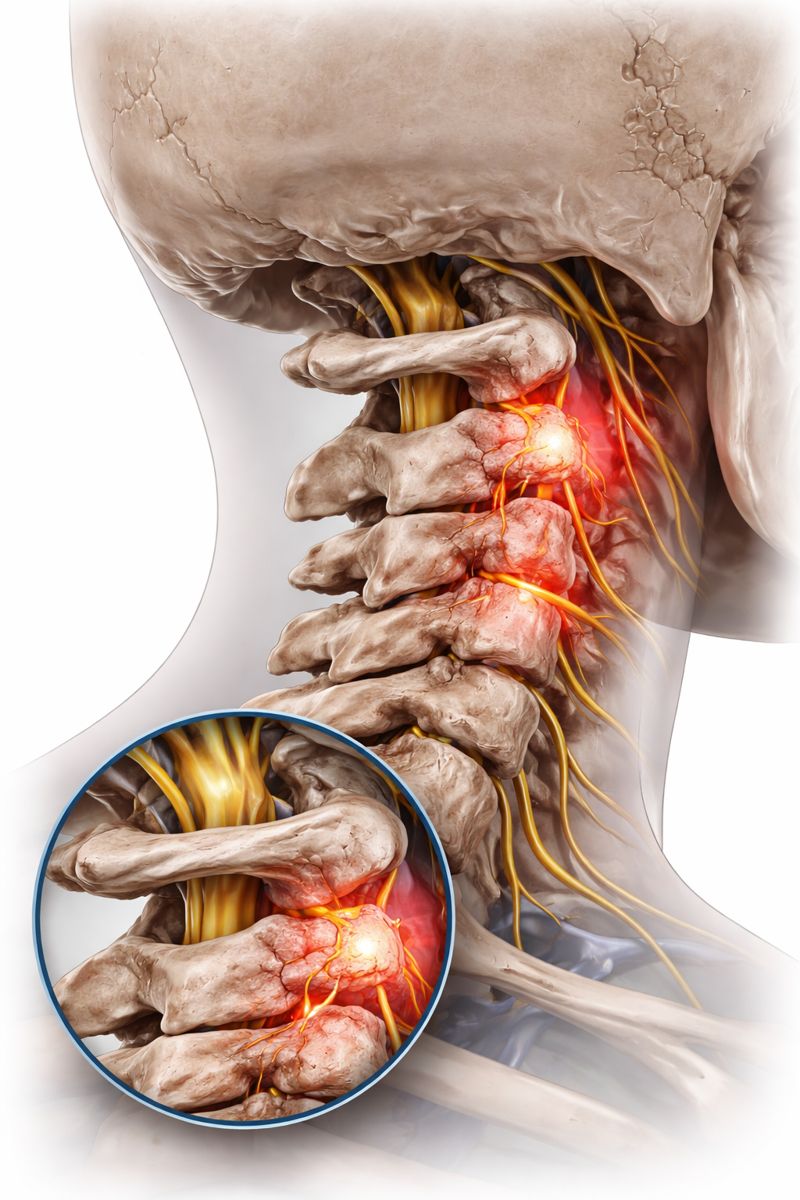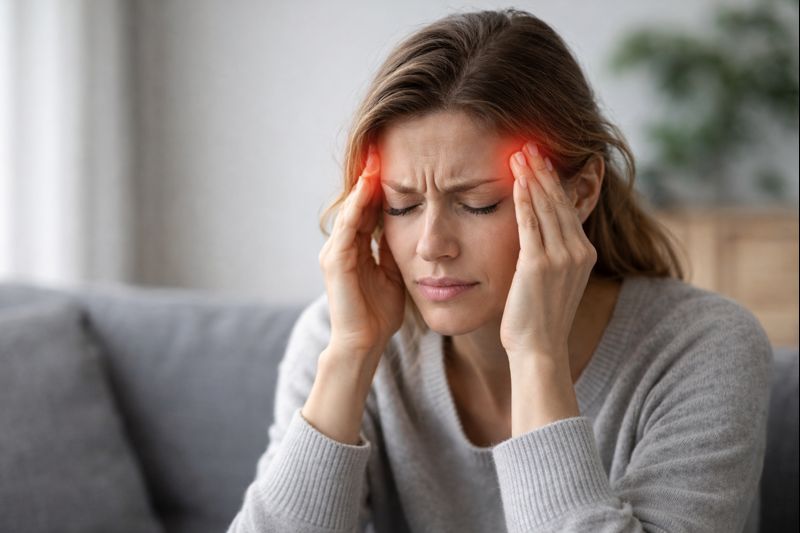
Neck pain is a common issue that affects millions of people worldwide. It can range from mild discomfort to severe pain that interferes with daily activities. One of the critical areas often implicated in neck pain is the upper cervical spine, comprising the first two vertebrae, known as the atlas and axis. This article delves into the intricacies of neck pain, the significance of the upper cervical region, and how upper cervical care can help alleviate discomfort and promote overall health.
Key Findings
By downloading the Digital Patient Chart mobile app you can better control your patient portal.
1. Prevalence of Neck Pain: Studies show that up to 70% of individuals will experience neck pain at some point in their lives, with a higher prevalence in office workers and those with poor posture.
2. Impact on Quality of Life: Chronic neck pain significantly reduces the quality of life, affecting physical activities, sleep, and mental well-being.
3. Upper Cervical Misalignment: Misalignment in the upper cervical spine can lead to various health issues, including headaches, migraines, and dizziness, apart from neck pain.
4. Efficacy of Upper Cervical Care: Specialized upper cervical chiropractic care has shown promising results in reducing pain and improving function in patients with neck pain.
Anatomy of the Upper Cervical Spine
The upper cervical spine consists of the atlas (C1) and axis (C2) vertebrae. These vertebrae play a crucial role in supporting the skull, facilitating a range of head movements, and protecting the brainstem and spinal cord.
- Atlas (C1): The atlas supports the head and allows the nodding motion. It is a ring-like structure that does not have a body.
- Axis (C2): The axis enables rotation of the head. It has a unique structure called the odontoid process (dens) that protrudes upward to articulate with the atlas.
The alignment and function of these vertebrae are vital for maintaining overall spinal health and neurological function.
Causes of Neck Pain
Neck pain can stem from various factors, including:
- Poor Posture: Prolonged use of computers and smartphones often leads to forward head posture, straining the neck muscles.
- Injuries: Whiplash from car accidents or sports injuries can cause damage to the neck structures.
- Degenerative Conditions: Conditions such as osteoarthritis and cervical spondylosis can lead to chronic neck pain.
- Stress: Emotional stress can cause muscle tension in the neck and shoulders, leading to pain.
Symptoms Associated with Upper Cervical Misalignment
Misalignment in the upper cervical spine can manifest in several ways:
- Headaches and Migraines: Misalignment can affect blood flow and nerve function, leading to chronic headaches.
- Dizziness and Vertigo: The proximity of the upper cervical spine to the brainstem can influence balance and coordination.
- Shoulder and Arm Pain: Nerve irritation in the cervical spine can cause referred shoulder and arm pain.
- Reduced Range of Motion: Stiffness and pain can limit neck movement.
Upper Cervical Care
Upper cervical care focuses on correcting misalignments in the atlas and axis vertebrae. This specialized chiropractic approach aims to restore proper alignment and improve overall function.
- Assessment: Upper cervical chiropractors use precise diagnostic tools, including X-rays and postural analysis, to identify misalignments.
- Adjustments: Gentle and targeted adjustments are performed to correct misalignments. These adjustments are typically low-force and precise, minimizing discomfort.
- Holistic Approach: Upper cervical care often includes recommendations for lifestyle changes, exercises, and ergonomic improvements to support long-term health.
Related Issues
Impact of Technology on Neck Health
The rise in technology use, particularly smartphones and computers, has contributed to a surge in neck pain cases. This phenomenon often referred to as "text neck," is characterized by poor posture resulting from looking down at screens for extended periods. Educating patients on ergonomic practices and posture correction is crucial in mitigating this issue.
Stress and Neck Pain
Stress is a significant contributor to muscle tension and neck pain. Techniques such as mindfulness, meditation, and regular physical activity can help reduce stress levels and, consequently, alleviate neck pain.
Sleep and Neck Pain
The quality of sleep and neck pain are interlinked. Poor sleep posture or inadequate pillow support can exacerbate neck pain. Patients should be advised on proper sleep positions and the use of supportive pillows to improve neck health.
Conclusion
Neck pain is a prevalent and often debilitating condition that can significantly impact an individual's quality of life. Understanding the role of the upper cervical spine and the benefits of specialized upper cervical care can provide a path to relief and improved health. By addressing misalignments, promoting proper posture, and incorporating holistic health practices, individuals can manage and alleviate neck pain effectively.
Additional Resources
For further reading and resources on neck pain and upper cervical care, consider the following:
- "The Cervical Spine" by the Cervical Spine Research Society
- "Text Neck: Impact of Mobile Device Use on Musculoskeletal Health" by the Journal of Physical Therapy Science
- "Upper Cervical Subluxation Complex: A Review of the Chiropractic Literature" by the Journal of Chiropractic Medicine
- Ergonomic guidelines and tips from the Occupational Safety and Health Administration (OSHA)
By exploring the intricacies of neck pain and the benefits of upper cervical care, this article aims to provide comprehensive insights and practical solutions for those seeking relief from neck discomfort.









Leave a comment